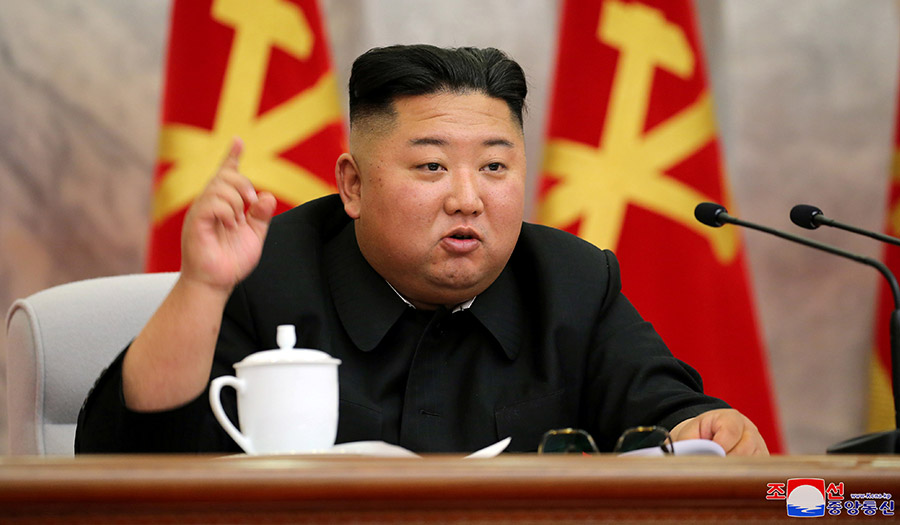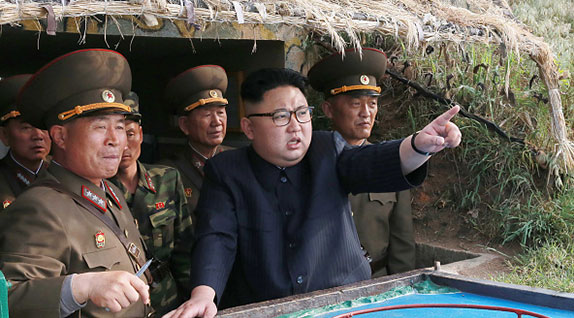 KCNA via Reuters
KCNA via Reuters
World News Desk
Learn the why behind the headlines.
Subscribe to the Real Truth for FREE news and analysis.
Subscribe NowSEOUL (Reuters) – North Korea said on Tuesday it will sever hotlines with South Korea as the first step toward shutting down all contact with Seoul, state news agency KCNA reported.
For several days, North Korea has lashed out at South Korea, threatening to close an inter-Korean liaison office and other projects if the South does not stop defectors from sending leaflets and other material into the North.
Top government officials in North Korea, including leader Kim Jong Un’s sister, Kim Yo Jong, and Kim Yong Chol, vice-chairman of the Central Committee of the ruling Workers’ Party of Korea, determined “that the work towards the South should thoroughly turn into the one against an enemy,” KCNA said.
As a first step, at noon on Tuesday, North Korea will close lines of communication at an inter-Korean liaison office, and hotlines between the two militaries and presidential offices, the report said.
On Tuesday morning, North Korean officials did not answer a routine daily call to the liaison office, nor calls on military hotlines, a South Korean defense ministry spokeswoman told a briefing.
The routine calls between South and North Korea should be maintained as they are basic means of communication, said the South’s unification ministry, responsible for inter-Korean affairs.
The ministry said it will continue to follow the agreed principles and strive for peace and prosperity on the Korean Peninsula.
On Monday morning, North Korea did not answer the liaison phone call for the first time since 2018, though it later answered an afternoon call.
The decision to cut communications marks a setback in relations amid efforts to try and persuade North Korea to give up its nuclear weapons program in exchange for relief on tough international sanctions. The two Koreas remain technically at war because the 1950-1953 Korean War ended with an armistice rather than a peace treaty.
Shares of South Korea’s defense firms surged after North Korea announced it would sever the hotlines.
Analysts said the move is likely about more than the defectors, as North Korea is under increasing economic pressure as the coronavirus crisis and international sanctions take their toll.
“North Korea is in a much more dire situation than we think,” said Choo Jae-woo, a professor at Kyung Hee University. “I think they are trying to squeeze something out of the South.”
Cutting communications is “a well-worn play for Pyongyang,” but one that can be dangerous, Daniel Wertz, of the U.S.-based National Committee on North Korea, said on Twitter.
“Regular communication channels are needed most during a crisis, and for that reason North Korea cuts them off to create an atmosphere of heightened risk,” he said.
The people of North Korea have “been angered by the treacherous and cunning behaviour of the South Korean authorities, with whom we still have lots of accounts to settle,” KCNA said.
The report accused South Korean authorities of irresponsibly allowing defectors to hurt the dignity of North Korea’s supreme leadership.
“We have reached a conclusion that there is no need to sit face to face with the South Korean authorities and there is no issue to discuss with them, as they have only aroused our dismay,” KCNA said.
- Real Truth Magazine Articles
- ASIA
 The Korea Conundrum
The Korea Conundrum
Other Related Items:
- China Risks New Cold War, Last Hong Kong Governor Says
- We Live in an Age of Incredible Advancement. So Why Does 2020 Look So Much Like 1918?


